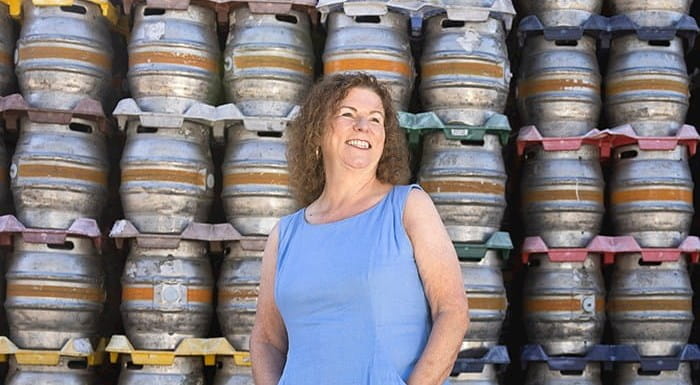The recent St James’s Place overcharging scandal has put the spotlight on corporate governance again. Writing recently in the Telegraph, Dame Helena Morrissey described the groupthink present on the board, and how damaging groupthink can be to good governance.
She talks from experience on how difficult it can be to speak up and ask the right questions as the lone dissenting voice on a board; in particular as a member of SJP’s board:
“I had joined the board in full knowledge of its ‘cruises and cufflinks’ scandal of the previous year, and been assured that ‘everyone [was] up for a shaking of the trees’. That did not turn out to be the case – at the time, at least. I felt powerless to make an impact. That suggests something is still very wrong about the way companies are overseen.”
Tanya Gass, a partner in the board practice at search firm Norman Broadbent plc, has spent a career working with boards. She has overseen a number of board effectiveness reviews and is well versed in the factors that can result in board groupthink.
Many board meetings she has observed simply don’t leave enough time for people to properly ask questions. There is too much on the agenda, and the focus is on getting through it all.
“When the House of Commons Select Committee published the Carillion board minutes, you could see that they often didn’t attribute sufficient time and thinking to significant issues: they moved on to the next item on the agenda, often reading out reports that should have been taken as read. That is singularly one of the biggest problems: in order for a non-exec to have the opportunity to exercise their questioning skills, the chair and the process have to allow them breathing space.”
David Levenson is an experienced non-executive director (NED) and former CFO who runs ICAEW Academy’s courses for board directors. He sits on the board of the Tavistock and Portman NHS Foundation Trust. He says that the role of the non-executive director needs to be clear and it needs to be facilitated. NEDs are there to challenge, to exercise professional judgement and scepticism, and to use their influence judiciously.
Ultimately, says Levenson, it’s about trusting your instincts and not second guessing yourself.
“Chartered accountants are used to dealing with evidence, but as a non-exec you need to be comfortable going with your gut. Not every decision is going to be right, you need to be comfortable with failure and learning from mistakes.”
But that can be difficult to do effectively if a NED feels like they are the lone voice in the room speaking up about something. It is human nature to want to fit in with a community, Gass says, so it’s important that board members have the psychological safety to express themselves.
Levenson says that, from an individual’s point of view, it can be important to get people on-side, which will involve conversations outside of board meetings. “If you've got a particular issue that you have a concern about, you might find yourself as the lone voice in the wilderness, because others don’t agree with or go along with it. That might be an indication of groupthink. If you think it’s particularly important, you need to build alliances with other members of the board. That’s what a good non-executive director should do.”
Gass agrees with this approach: “A lot of CEOs aren’t actually used to persuading and influencing. They’re more accustomed to collating opinions from experts. What they’re not used to doing is utilising everyone in a flat structure, which is a board. That is an entirely different skillset.”
There can be a downside to this sort of influencing if it results in the formation of cliques and factions, says Levenson. “Cliques and factions are not good for governance; it’s a symptom of groupthink.”
As individuals, one of the most effective things a NED can do is embrace their ignorance and channel it into discussions. They should never go along with the experts because they are more knowledgeable, says Levenson.
“No question should be regarded as a stupid question,” he says. “Not least because if that question is on your mind, chances are it’s on someone else’s mind as well. So you’re speaking up on behalf of not only yourself but also other colleagues who may be less willing. That's really important, if you’re going to take on a board role. You can’t be a wallflower.”
Gass agrees. The “stupid” question is in fact the excellent question, she says. By asking that question, NEDs will be challenging the status quo – the way that people within that organisation expect things to be done. “In our recent boardroom survey, we asked NEDs to tell us what the best types of question are to challenge groupthink. The answers have included ‘Why?’, ‘What if?’, ‘What is the process?’ and ‘The questions others are afraid of asking’. So of course none of these questions, albeit simple, is stupid: these questions may force a deeper discussion, which is how you protect against homogeneous thinking.”
Levenson says that this is part of the NED’s responsibility on a board. If something is very technical or jargon-based, ask for it in plain language, he suggests. “Sometimes a really good tactic on the board is to replay what you think you've heard: ‘What I think you've told me is this, is that correct?’”
Being the lone voice on a board bringing this level of challenge can be difficult and frustrating, says Gass. Being seen as too much of an agitator can limit your impact and influence over time, as people stop listening to you. Ideally, the entire board should be challenging as a group and this tone is set by the chair.
Chartered accountants have the professional judgement and scepticism to be able to be a strong voice of challenge on boards, if they have the space to do so. Dame Morrissey is encouraging people to look at how boards work and to ensure that independent non-executive directors have a genuine “licence to disagree”. She suggests having a rotating ‘devil’s advocate’ role to encourage more critical questioning. “Otherwise, I am afraid these scandals and loss of shareholder value will just keep on coming.”
Benefits of shadow boards
This guide outlines what a shadow board is, how to establish one and the benefits for accountancy businesses.




